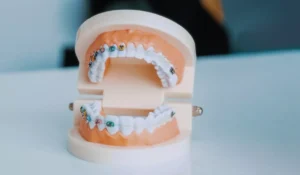 All teenagers deal with rollicking and extreme emotions. Euphoria can follow on the heels of despair in what seems like five minutes. While it’s common for teenagers to experience life as a continuous series of tough internal battles, some teenagers go through emotional extremes that interfere with their lives, schoolwork, and relationships.
All teenagers deal with rollicking and extreme emotions. Euphoria can follow on the heels of despair in what seems like five minutes. While it’s common for teenagers to experience life as a continuous series of tough internal battles, some teenagers go through emotional extremes that interfere with their lives, schoolwork, and relationships.
Anger can be a particularly troubling emotion to encounter on a regular basis in your child, and if she has difficulty controlling it, you may often feel at your wits’ end. You don’t just have to endure. Here are five options for helping your angry teen overcome her anger and succeed so that her anger doesn’t ruin her relationships or inhibit her schooling and education.
Try Alternative Schooling Options
Sometimes, anger can become so dominant in a teen’s life that her school and home life suffer debilitating setbacks. An angry teen can find it impossible to focus on schoolwork, so grades may slide. She can get suspended over outbursts or language. If she damages property, verbally abuses family or friends, or threatens to harm herself or others, you may need to take extreme measures to put her back on the right track.
In these instances, an alternative school, like boarding schools can help. Boarding schools like Diamond Ranch Academy focus on the mental health needs of students, while providing structure, nurturance, a normal school experience, and much-needed safety and supervision. It’s an environment that can help your teenager learn to understand, experience, and constructively manage her anger in a positive way.
 Try Music, Sports, or Arts
Try Music, Sports, or Arts
Self-expression is incredibly important for teens to engage in on a regular basis — especially as a way to regulate and name emotions — but not all teens have a positive and meaningful medium of self-expression. Based on your teenager’s interests and desires, guide her toward music, sports, or art. All are time-tested arenas that foster and reward hard work, creativity, self-satisfaction, and self-expression, and they can also help blow off steam, too.
If your teen has never engaged in any music, sports, or arts-related activities before, choose options where the skill level doesn’t have to be high for enjoyment to occur. The cello, for instance, takes years to master, but the ukulele can be pleasingly played and in just an afternoon or two. Volleyball is a sport that requires a lot of skill, but cross-country can be tackled just by joining a team and running harder and farther each day.
Get a Therapist
Anger exists for a reason, but that doesn’t mean the person experiencing it knows what that reason is or what to do about it. Cognitive behavioral therapy — also called “talk therapy” — is a form of therapy that invites the person in the therapist’s care to examine the ways negative and unrealistic thoughts play into feelings and behavior. It’s been shown to help people both control their anger and decrease their feelings of anger as well. If you haven’t tried therapy for your angry teen, a cognitive behavioral therapist could be a great help.
Don’t Just Suppress
When anger is commonplace, it can be such an unpleasant emotion that you or your teen may try to suppress it. Unfortunately, suppressed anger still needs an outlet and she could burst during classes or at home during dinner. If it isn’t given a constructive tone, it will come out in unexpected ways that can include but are not limited to anxiety, depression, outbursts, health problems, and violence.
Yes, it’s difficult to deal with an angry teen, but don’t encourage her to stop being angry. Instead, stay calm and redirect her attention toward her breathing or something positive. When she’s calmed down, ask her to talk about her experience of the emotion and what led up to it. If she resists, let her know you respect her right to share her feelings as she sees fit, and encourage her to journal or talk to a friend.
Model Managed Anger
Perhaps the most valuable way you can help your angry teen is to model what managed anger looks like. Far too often, angry teens come from households where no one ever visibly gets angry. When parents hide their anger from their children, a teen’s experience of it can feel terribly foreign, and she may feel completely alone in how to manage it.
Don’t hide your anger from your teenager. Instead, model positive ways of coping with it, and once the emotion has left you, share your experience. From deep breathing and taking a walk to playing the drums for an hour, there are a lot of ways to manage anger in a healthy way. Show your teen what that looks like, and she’ll start to believe she can learn to manage her anger, too.
Coping with an angry teenager isn’t easy, but it’s possible. From therapy to modeling managed anger, these five tips can help you both survive.




Thanks for sharing this great post. It’s important to address problems with your teens before they have a chance to fester.
Diamond Ranch Academy sounds like a great place to help kids with issues. You really have to address problems quickly with teens. Those problems can spiral rapidly.
These are all great ways to help your teen deal with their anger. It can be great to have an outlet like music or sports.
I was definitely an angry teen that did not learn how to handle it until I was well into adulthood. A good workout still puts a smile on my face!
I’m getting a flashback to when I was a teen. Those suggestions would have helped a lot with what I was going through and sometimes hormones can have a big impact on those teen mood swings too. Hang in there parents, it can get better!
My daughter has a friend who is a very angry teen. I really wish her parents would address her issues instead of trying to pretend like nothing is wrong!
I was just discussing the teenage years with my neighbor…. the turbulence of raising em, so your post has perfect timing.
I think so many people, not just teens, don’t know how to manage anger; expressing it or dealing with it. These are great tips for so many.
It’s important to teach them the best way to express anger. Great tips to handle it!
As the mom of a troubled teen, I really appreciate this post. It’s so important to find ways for your child to deal with their anger!
Teenagers can be so tricky to deal with. My kids are 21 ans 17 and it has been a roller coaster ride.These are great tips.